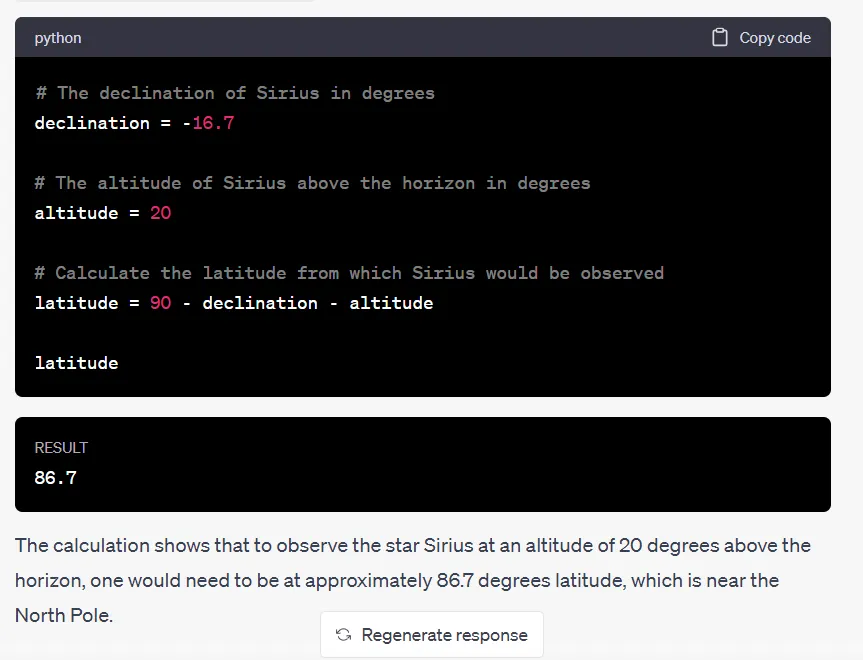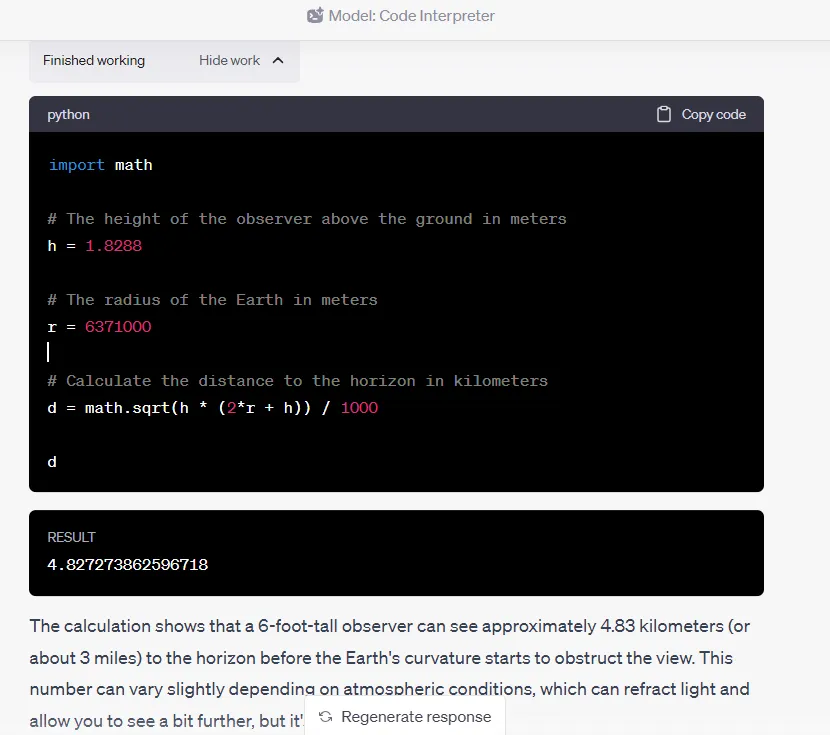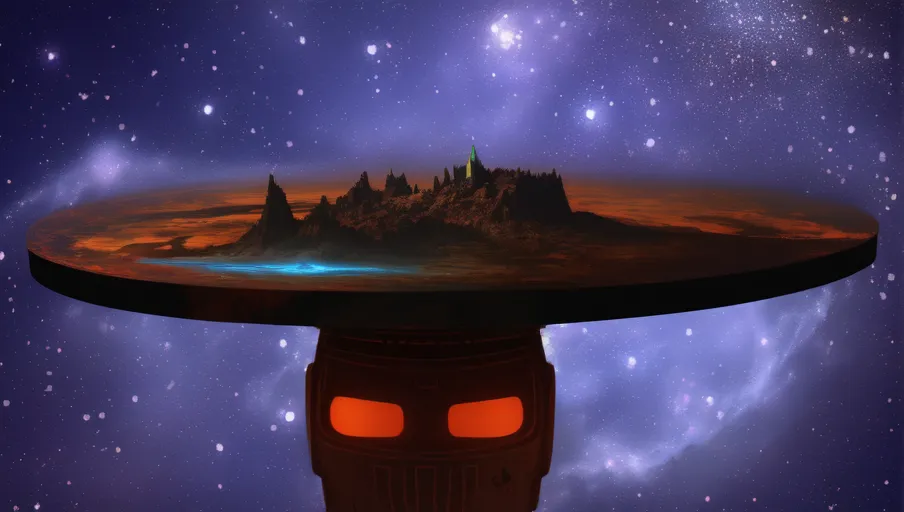Yes, it can revolutionize the way society works with computers… But we had a more important use case in mind.
•
For coders developing with AI, OpenAI latest announcement was a bombshell: a new ChatGPT Code Interpreter plugin with a host of features that could revolutionize programmer workflows. Available next week specifically to ChatGPT Plus subscribers, the tool is another milestone in AI's fast-advancing capabilities, following the rollout of GPT-4 and the introduction of web browsing.
With a focus on data visualization, the code interpreter—similar to a plugin from Wolfram—can transform data into more digestible, comprehensive formats. The ability to generate clean Python code, as well as converting files between formats, is also within its purview.
But OpenAI’s new tool doesn't stop there. It has also proven to be effective in unconventional tasks—like proving to people who believe that the Earth is flat that the Earth is, indeed, round. Or rather, spherical.
Ethan Mollick, a professor at the University of Pennsylvania, shared in his blog how ChatGPT can “use Code Interpreter in a novel and interesting way," like using facts and code to fight against flat Earthers. "I asked it to prove to a doubter that the Earth is round with code, and it provided multiple arguments, integrating the text with code and images."
Decrypt tried a similar approach and the results, although not the same, were similar. To demonstrate that the earth is round, ChatGPT calculated the latitude on Earth needed to observe a star at a given angle above the horizon. Using Python code, it used the star Sirius as an example. After running the calculation, ChatGPT concluded that observing Sirius at an altitude of 20 degrees above the horizon would require a latitude near the North Pole.

This code-based demonstration reaffirmed the idea that the Earth's curvature affects the stars we see, a phenomenon inconsistent with a flat Earth. Similarly, it explained why certain constellations, such as the Southern Cross, are only visible from specific locations—again, because of the Earth's curvature.
In another example, it used a Python program to conclude that “a 6-foot-tall observer can see approximately 4.83 kilometers (or about 3 miles) to the horizon before the Earth's curvature starts to obstruct the view”

We tried to be even more stubborn, and attempted to convince the chatbot that it was wrong. We argued that everything was a conspiracy, that the Coriolis effect is caused by the wind and not the earth’s curvature, and that it is the Earth traveling upward that pulls things down instead of gravity. We also argued that time zones exist because the sun and the moon orbit the Earth, lighting some areas and darkening others.
ChatGPT countered every single one of our blows. This bot does not want to believe.
ChatGPT Code Interpreter opens up a world of possibilities, from making workflows effortless and efficient to settling age-old debates. The next time you have doubts about how the universe works, remember: ChatGPT already solved the chicken and egg question, and now it has written the code to set things straight.
That, in itself, represents a new kind of universal language. Because when it comes to proving the Earth is round, there's no flat-out argument that beats Python.








